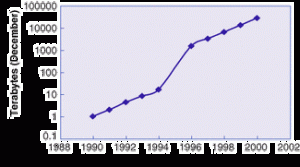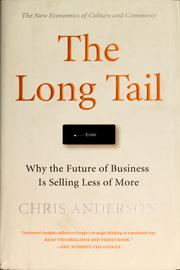11 Jun 2008
0 CommentsEntrepreneurial Toolkit #2: “Don’t Drink Your Own Bathwater”
In the tech heyday of the mid-1990’s, my favourite US investment banker, Mark Slater (formerly of Hambrecht & Quist) had a strategy to avoid CEOs that, as he so eloquently put it, “Drank their own bathwater”. Mark had identified the tendency amongst CEOs, even entire executive teams, to become so satiated with the power and glitz of riding the waves of technology/media hype, that the corporate adulation goes straight to their head.
Ego and ambition, never faults in themselves, taken to extremes tend to cloud better judgment. Anyone who has visited their capital city, like Washington, London or Ottawa, has witnessed the same effect that all that marble and walnut lining the corridors of power have on newly elected Members of Parliament or Congress.
I’m sure all of us entrepreneurs have been seduced by the siren call of their own PR. I know I have. But long ago I learned that, no matter how big the entrepreneur’s ego, it is critical to be self analytical and have enough inner humility and judgement to resist the corrupting force of power and spin. Every company has faults, challenges and issues to deal with. In truth, no matter how great the press or the wave being ridden, no company can entirely escape the buffeting of real world forces and the ups and downs of a cruel world. Navigating such turbulent waters is simply another challenge entrepreneurs need to face every day.
 Ed Iacobucci, CEO Dayjet
Ed Iacobucci, CEO Dayjet
One example, and a person I would consider a mentor and role model, is Ed Iacobucci, founder of Citrix Systems and more recently Dayjet. Ed, an industry visionary, pundit, technologist supreme with energy and a will to win, is a man for whom I have infinite respect. Specifically, Ed has weathered highs and lows like almost no one else I know. For example, when I first met him, he was CEO of an almost bankrupt startup selling multi-user OS/2 technology (go figure). Later, after re-targeting the Citrix product family around Windows NT, his company was a NASDAQ darling and on a roll.
Imagine being in Ed’s shoes when, at the February H&Q conference at the Westin St. Francis in San Francisco, he learned that Microsoft had just informed them that they were planning to compete with their core product, Ed led the charge with the team. First he did the honest thing and issued a press release, which had the effect of instantly wiping out over 80% of Citrix’s market capitalization. Without even going home, Ed flew straight to Redmond and led the 24×7 multi-month battle to save Citrix from being “Quickenized” by Microsoft. A $150 million deal saved the day, but the key fact was that Ed remained honest to himself and his shareholder base throughout, which is no simple task for a major public company given shareholder disclosure rules. Several years later, when his stock price touched $50, making Citrix worth a cool $20 billion, his only comment was a modest and realistic “that stock price is a lot to live up to.” Perhaps this illustrates why I have such admiration for Ed as an individual.
 For every Ed Iacobucci, there were many dot com era fibre and telecom firms that, despite all hard data to the contrary, ran their businesses into the ground on the false proposition that the interent was doubling every 90 days. And, make not mistake, sheer hubris was the major contributing factor.
For every Ed Iacobucci, there were many dot com era fibre and telecom firms that, despite all hard data to the contrary, ran their businesses into the ground on the false proposition that the interent was doubling every 90 days. And, make not mistake, sheer hubris was the major contributing factor.
In summary, humility and being self critical (“not drinking your own bath water) coupled with fearless passion (the killer instinct and laser beam focus) are two of the most important qualities in the Entrepreneurial Toolkit. Well balanced, and taken together, they are a winning combination. Most importantly, like almost all personal success factors, they can and must be learned as only a rare few are born with this wiring.



28 Jun 2008
0 CommentsEntrepreneurial Toolkit #3: Embrace Change
Successful entrepreneurs must push themselves to develop a set of, often seemingly contradictory, business and life skills. We’ve already talked about fearless passion and not drinking your own bathwater.
Today, we’ll expand on a skill that is becoming ever more important in these times of rapid technological, social and business evolution — the need to embrace change. In my own life, it has been a personal hallmark, so much so that without major new challenges and course corrections, my life satisfaction drops precipitously. Therefore, seeing Guy Kawasaki’s recent interview with Ariane de Bonvoisin called Change is Good reminded me to add change into my personal Entrepeurial Toolkit as skill #3.
For me personally, it is wonderfully affirming that, what I used to consider a pathological need for change, is in fact highly adaptive for the future world. Ariane’s book defines ideal entrepreneurs as “chance optimists”, who believe change is mostly good. Furthermore, those who have a strong believe in the positive power of change can flex their “change muscle” to overcome adverse emotions, or “change demons.” I think you get the picture, but it is certainly well worth reading, if only to re-affirm how important change has become to building lasting value.
The notion that change is cool has long been a hallmark of the culture of Silicon Valley, and most technology startups. Entrepreneurial founders are naturally aggressively impatient, pursuing change with an ADHD-like intensity. In fact, one influential business school commentator, who will remain nameless, suggested that the management style favoured in the Silicon Valley, which is so tuned to rapid growth and a challenging environment, would totally fall apart in the more repetitive world of “traditional” business. The truth is that the technology startups of the 1980’s and 1990’s were almost certainly belwethers heralding the morphing of our economy into one that is largely knowledge-based. I’m really not so sure that a business built on repetition and “continuous improvement” (which, sadly, is often more like “death by a thousand cuts”) has much of a future. But, what is unquestionably true is that the change-intensive technology startup culture is miles apart from traditional businesses whose historical rate of change was measured in decades, not weeks or months.
I mention this because I still have people ask me to talk about experiences in developing “go to market” strategies from 10 or even 15 years ago. While there are some valuable object lessons there, the approaches today (as we’ve discussed in other blog posts) are totally different. That being said, I feel that those earlier experiences have helped me to navigate this current change-infused world. Alas, my early world of physically shrinkwrapped software, sold through mail order distributors like Programmer’s Paradise and advertised in physical magazine ads, that built MKS in the 1980’s is largely history. The 1990’s saw most software sold via ecommerce on the web. Millenial startups leverage vast social networking platforms (Facebook, Twitter, etc.) and mobile distribution models. Like the tape analogy, each iteration of the market is pushing the envelope and, yet, each borrows heavily from existing playbooks as well.
Furthermore, even technology startups can get into a rut of repetition. As an entrepreneur, it is critical to have a network of intelligence that helps you navigate your ever changing business landscape.
In summary, embrace change by being both a “change optimist” yourself and encouraging it in your team. My strong belief is that it will enhance your ultimate success as an entrepreneur, and also increase your personal satisfaction during your personal journey to success, however you define it.